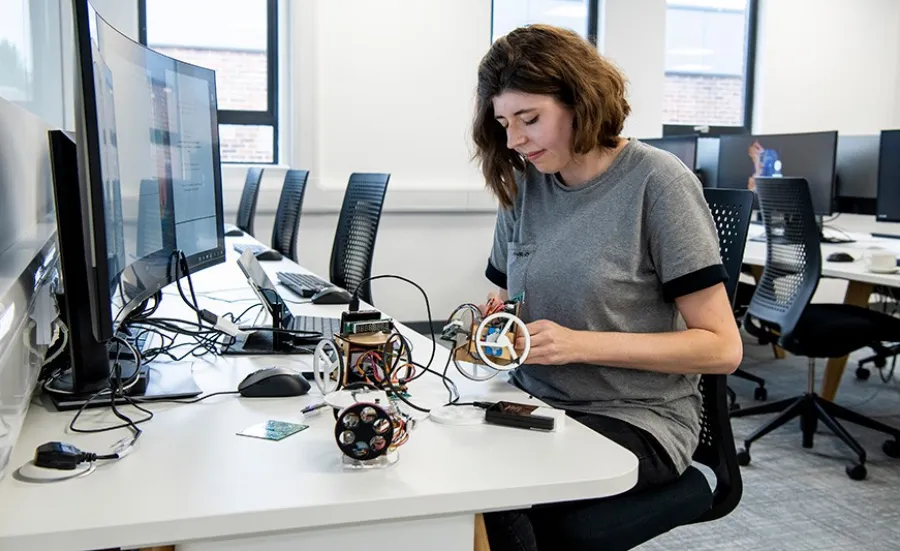Current research degree projects

Explore our current postgraduate research degree and PhD opportunities.

Explore our current postgraduate research degree and PhD opportunities.

During adolescence a quiet transformation is taking place in our limbs; when the growth plate fuses we fundamentally alter our biomechanics. This project aims to better understand this critical process to protect our future joint health.
Quantum sensors may permit long-range navigation when satellite systems cannot be used. This project will develop a quantum inertial sensor simulator, built around experimentally validated computational models, to provide real-time simulated data from actual motions, so that navigation engineers can explore quantum integration ahead of real quantum device availability.
This project investigates the synthesis of mixed anion thin films for transparent conductor applications. The project will involve the use of a range of thin film deposition techniques, including aerosol assisted chemical vapour deposition.
The preparation of molecular rare-earth (lanthanide) complexes for chemical vapour deposition (CVD) is key to the development of rare-earth doped optical fibres for high-powered lasers. This project will deliver the next generation of CVD precursors through development of novel, volatile rare-earth complexes, using synthetic organic and inorganic chemistry.
Cargo bikes are promoted as a sustainable alternative to car-based travel, but their use as care infrastructure in a family setting is under-explored. This project seeks to investigate how these technologies function within family contexts and how their use may shape everyday mobility practices, children’s experiences, and transport equity.
Using a rotating detonation engine (RDE) as gas turbine combustion chamber could increase engine efficiency dramatically. This project will implement two-phase flow and spray combustion modelling into our in-house dynamically adaptive RDE code to quantify the potential of RDE-based jet engines by massively parallel computational fluid dynamics (CFD) simulations.
Hypersonic glide vehicles operate in an extreme aerothermal environment and are genuinely difficult to control. While evaluating control methodologies currently relies on precomputed aerodynamic databases, this project will extend and directly couple our inhouse predictive, non-equilibrium aerothermodynamic overset strand-mesh computational fluid dynamics (CFD) solver with the control methodology.
This project will pioneer space-ready electrospray ionisation mass spectrometry to detect biosignatures in the Solar system. Combining spacecraft propulsion electrospray techniques with flight-proven miniaturised mass spectrometers, the project develop cutting edge electrospray mass spectrometry techniques through a unique collaboration with the European Space Agency (ESA) mission heritage.